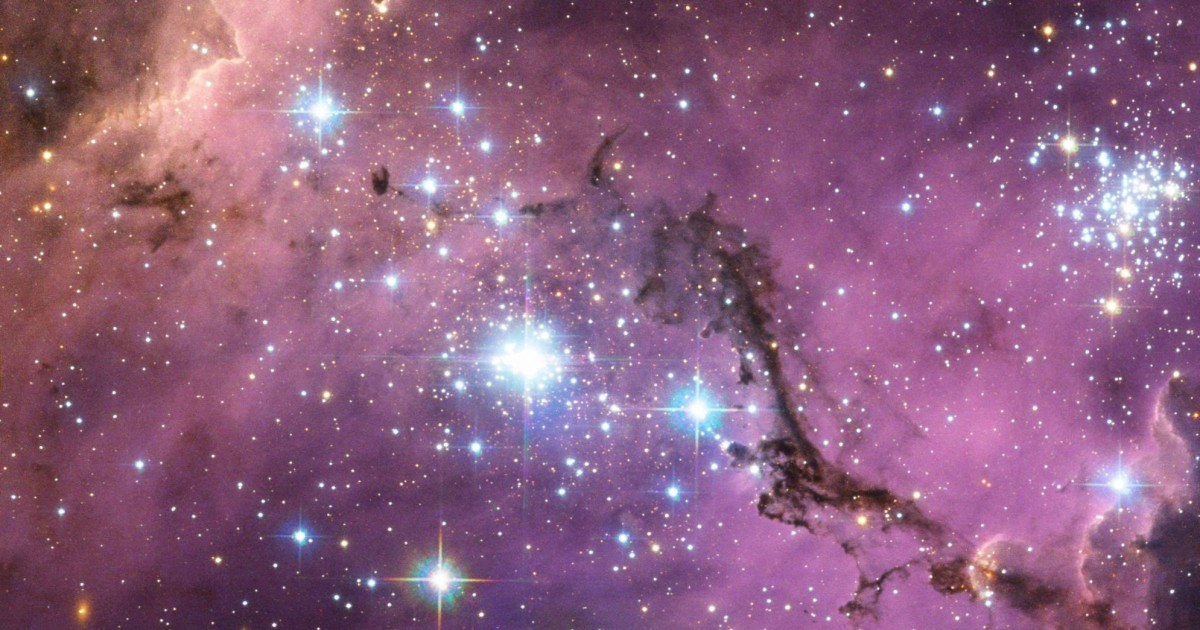We have all misplaced music of time at one point or one other, but astronomers truly crawl all in. Most modern compare demonstrate they might furthermore impartial maintain puffed up the age of the universe by more than one billion years — a surprising realization that is forcing them to rethink key ingredients of the scientific story of how we got from the Giant Bang to at the present time.
The misplaced time is terribly vexing which implies that of, in a universe burly of mysteries, its age has been seen as one in all the few end to-certainties. By 2013, the European Planck say telescope’s detailed measurements of cosmic radiation regarded to maintain yielded the the rest solution: 13.8 billion years earlier. All that became as soon as left to make became as soon as to maintain a look at that quantity the utilization of self sustaining observations of intellectual stars in varied galaxies.
Then came an sudden flip of events.
A pair of groups, along with one led by Nobel laureate Adam Riess of the Assign of residing telescope science Institute in Baltimore, say out to accumulate those observations. In say of confirming Planck’s measurements, they started getting a distinctly varied end result.
“It became as soon as getting to the point where we utter, ‘Wait a 2nd, we’re now not passing this take a look at — we’re failing the take a look at!'” says Riess, co-writer of a unique paper about the compare to be printed in Astrophysical Journal.
He estimates that his outcomes, taken at face price, demonstrate a universe that is most efficient 12.5 billion to 13 billion years earlier.
On the muse, the final assumption became as soon as that Riess and the varied galaxy-watchers had made a mistake. But as their observations persisted to return in, the outcomes didn’t gallop. Reanalysis of the Planck info didn’t demonstrate any issues, both.
If the total numbers are accurate, then the enviornment must speed deeper. It must lie in our interpretation of those numbers — that is, in our traditional gadgets of how the universe works. “The discrepancy means that there’s one thing in the cosmological model that we’re now not working out factual,” Riess says. What that one thing would be, no one knows.
Discovery of the ruin of day of time
The original discrepancy traces its foundation components again to 1929, when astronomer Edwin Hubble chanced on that galaxies are fleeing from Earth in all instructions. Extra ravishing, Hubble chanced on that the farther away the galaxies are, the faster they’re engrossing apart. That pattern means they’re all fleeing from every varied as smartly. “The most efficient components all of this would be appropriate is if say is rising,” Riess says.
If the thought of an rising universe appears to be unique to you, welcome to the membership.
“It be smooth unique to me, too,” Riess says. “But that is what all of the strategies demonstrate, and that is the reason what our thought predicts.” Even Hubble never entirely well-liked the implications of his maintain work.
An rising universe implies that the universe has an even age, which implies that of that it is probably going you’ll retrace the action again to a time when all the pieces in the cosmos became as soon as crammed together in an especially dense, sizzling say: what we call the Giant Bang.
“Right here’s one other laborious thought for folks to accumulate their heads around,” College of Chicago cosmologist Wendy Freedman acknowledged, along with that the Giant Bang didn’t crawl off deal with a more or much less bomb. “The Giant Bang is an explosion of say, now not into say,” she acknowledged.
In varied words, galaxies must now not flying a ways from every varied through say. Assign of residing itself is stretching between them, and it has been ever for the reason that Giant Bang. So it is meaningless to quiz where the Giant Bang took place. It took place in every single place. As Freedman places it, “There is rarely at all times any center or edge to the explosion.”
But in the rising universe, there’s a starting of time — now not lower than, time as we understand it. By measuring the speed at which galaxies are engrossing apart, astronomers realized, they might furthermore impartial figure out the 2nd when the cosmos blinked into existence. All they’d to make is figure out pointers on how to accumulate their galactic measurements precisely factual.
Clocking the cosmos
Freedman has been working on that enviornment for more than three an extended time, a ways longer than she ever expected. “Right here’s an astounding say,” she says. “Imagine making measurements out to hundreds of tens of millions of light years to 1-percent accuracy!”
Hubble himself flubbed the take a look at. His usual calculations implied a universe younger than Earth, which implies that of he had a great deal underestimated the distances to varied galaxies.
The problem of constructing dispute observations of varied galaxies is one in all the the explanation why scientists created the Planck say telescope. It became as soon as designed to detect radiation left over from the Giant Bang. The pattern of that radiation indicates the genuine physical say of the early universe, when you know pointers on how to decode it. In principle, then, the Planck readings can maintain to smooth repeat us all the pieces we pick to understand about what the universe is made of, and how earlier it is.
Planck has been a resounding success, pinning laborious numbers onto the relaxed riddles of the cosmos. It indicated that 26 percent of the universe contains darkish topic, invisible cloth that helps attend galaxies together. It furthermore confirmed the surprise discovery that the universe is dominated by darkish energy, an unknown pressure that permeates all of empty say. (The detection of darkish energy is what earned Riess a shared 2011 Nobel Prize.)
The in all probability implication of those findings is that the universe will attend rising eternally, faster and faster, into an ever-deeper darkness. It be an sorrowful opinion, one who Riess would moderately now not dwell on: “The scale of time is so previous that of humanity, I don’t recall to mind it in human terms.”
Most ravishing, perchance, Planck indirectly done the job that Hubble started, determining how fleet the universe is rising and how long it has been around. Or so it regarded.
One thing tall is lacking
Happily, Freedman and Riess and their colleagues didn’t stop on their alternate methodology to determining the age of the universe. They saved improving their observations, and are now getting end to that formidable aim of 1 percent accuracy. Which brings us to the original dispute — what the scientists in a smartly mannered components consult with as “the stress.”
The most modern galaxy compare demonstrate an growth rate about 9 percent faster than the acknowledge from Planck. That can furthermore impartial now not sound deal with considerable of a incompatibility, but over cosmic history it adds as much as that burly billion years of misplaced time.
Given the stakes, every person fervent is checking and rechecking their outcomes for that that it is probably going you’ll recall to mind sources of error. Increasingly, though, it looks deal with the enviornment lies now not with the observations but with the theories of cosmology that underpin them. If those theories are unsuitable or incomplete, the interpretation of the Planck readings shall be mistaken, too.
“There is for the time being no consistent story that works for all our cosmological info,” says Princeton College astrophysicist Jo Dunkley, who has broadly analyzed the Planck outcomes. “Which implies there’s charming work to be done, to crawl attempting to secure if there’s one thing available that might perchance demonstrate all of it.”
The “power” reminds scientists of genuine how considerable they smooth don’t realize about the underlying authorized pointers of nature. Dunkley aspects to the ghostly particles identified as neutrinos, which would be extremely abundant throughout say. “We measure neutrinos in the lab and build them in our cosmological model assuming that they are behaving genuine as we demand them to, but we simply do now not know if that is appropriate,” she says. “I’d now not secure it surprising if darkish topic turned out to be more sophisticated than we predict, too.”
Then there’s the enigma of darkish energy. “We have not any factual strategies for what it is. Most likely there are furthermore aspects completely lacking from the model side, smooth to be chanced on,” Freedman says. Theorists must now not maintain any shortage of strategies: unique forms of darkish energy, unique fields, unique particles.
Determining which explanation is accurate — if any — would require one other mammoth enchancment in how we measure what the universe is de facto doing. Freedman is rarely at all times coy about the magnitude of our lack of knowledge: “The quiz is, what make we maintain yet to learn? I’d maintain to return again in a hundred or a thousand years and secure out!”
WANT MORE STORIES ABOUT SPACE?
- New Hubble Assign of residing Telescope photograph is a ‘residing history ebook’ of our universe
- Scientists indirectly solve the thriller of unique aurora-deal with lights in the sky
- Mystery of moon’s formation might perchance furthermore impartial were solved
SIGN UP FOR THE MACH NEWSLETTER AND FOLLOW NBC NEWS MACH ON TWITTER, FACEBOOK, AND INSTAGRAM.





Leave a comment
Sign in to post your comment or sign-up if you don't have any account.